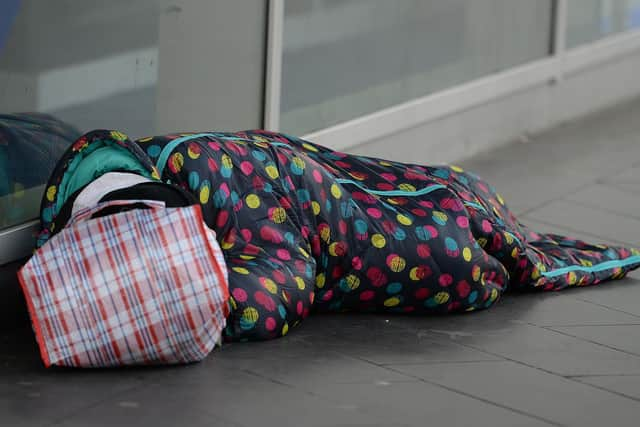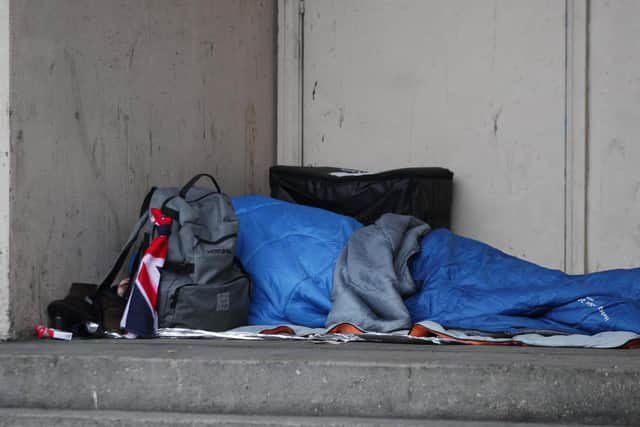Fewer sleeping rough on Bedford's streets
and live on Freeview channel 276
Fewer people were sleeping rough in Bedford last autumn, snapshot figures suggest.
But charities are warning that an end to emergency measures introduced in response to Covid-19 could spark a post-pandemic surge in homelessness nationally.
Advertisement
Advertisement
Thousands of people were preparing to sleep on the streets across England as stricter lockdown measures were introduced during October and November last year.


Ministry of Housing, Communities and Local Government data shows six people were found bedding down outside in Bedford during a spot check on one night in that period.
According to the Government's annual rough sleeping count, that number was down from 2019, when 30 were thought to be surviving on the area's streets.
Across England, there was a significant decrease in rough sleeping linked to 2020's Everyone In scheme, which saw the Government give councils extra funding to accommodate as many homeless people as possible in order to shield them from the coronavirus.
Advertisement
Advertisement
Tightening lockdown measures kept the majority behind closed doors as winter drew in but at least five men and one woman slept rough in Bedford on that night last year.


Most rough sleepers in England are thought to be from the UK but more than 400 were from the EU and more than 120 from outside of the European Union, according to the figures. In Bedford, there were five from the UK and one from the European Union.
The countrywide count showed a fall of more than a third in the number of people estimated to be on the streets – from 4,266 in 2019 to 2,688 last year.
However, the true scale of rough sleeping is thought to be much higher – and could get worse in the aftermath of Covid-19, experts believe.
Advertisement
Advertisement
Crisis chief executive Jon Sparkes said the success of Everyone In underlined the positive impact of a collective response to the issue but warned there could be a rise in homelessness when protective measures brought in during the pandemic come to an end.
Mr Sparkes said that the statistics reflect life-changing efforts of authorities to provide people with a safe place to stay during the pandemic.
However, he said that they do not represent the full picture, adding: “Throughout the pandemic we have seen new people forced onto our streets and every person sleeping rough is one too many.
“The last 12 months has shown that when the political will is there, and homelessness is given the priority it deserves, we can bring people off the streets.
Advertisement
Advertisement
“As the country begins to move out of lockdown, the Government must have a plan to help people end their homelessness altogether and measures in place to prevent them from losing homes in the first place.”
Housing secretary Robert Jenrick said ending rough sleeping was a “personal mission” as he celebrated the success of Everyone In, which supported thousands into secure accommodation.
He said the count reflected huge progress and was achieved by the Government working with councils, charities and faith groups, adding: “There is more to do, but I am determined to continue to drive progress forward.”
The Government has pledged to spend £750m in the next year on tackling homelessness, aiming to eliminate rough sleeping by the end of the current Parliament.
Advertisement
Advertisement
Centrepoint’s Paul Noblet welcomed the support offered but said a gap between the “shocking” number of people seeking help during the pandemic and the snapshot survey represented a systematic inability to adequately measure rough sleeping.
He said: “Without understanding and acknowledging the true scale of the problem, it’s almost impossible for councils to secure the resources desperately needed to tackle it.”
The rough sleeping count does not consider those living in temporary accommodation like hostels, or the so-called ‘hidden homeless’ staying in insecure accommodation like squats or temporarily sofa-surfing with friends or family members.